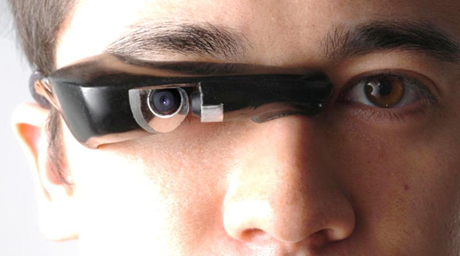Sousveillance is the recording of an activity by a participant in the activity, typically by way of small wearable or portable personal technologies. Aug 30, 2016
Brave New World and 1984 got it wrong – a lot of dystopias do. We are the ones who are helping to build the ubiquitous surveillance system – we daily opt into it, signing away our rights and turning our devices into listening and watching devices, as we fail to read the EULAs and the small-print. We are even signing away the rights to our genetic data in perpetuity. The deluge of data on a daily basis gets too much, and so we end up missing some things that we really should pay better attention to.
We Daily Opt In To The Surveillance Of Ourselves
Go to My Activity on Google and track yourself moving around and doing things throughout the years; things you maybe even forgot you did. Think about those perfectly tailored ads that follow you around, the product suggestions you get. Think about all those surveys that you fill out about your views and your buying habits for minimal reward. How often throughout the day do you give some company that you don’t know, apart from the novel quiz in front of you, access to your Facebook accounts and all your pictures and contacts? You are constantly and consistently linking up accounts, and trying to make everything more manageable, and more friendly to each other. You are building a dossier on yourself.
You read on a Kindle, record your reviews on Goodreads, review your purchases and packaging on Amazon, buy your food from Whole Foods 365, and use a shopping list app on your Android, which you order your Uber through, and which checks you in and asks your opinion about the last 3 places in your timeline that you visited, all the while listening to music in the Amazon Cloud, pausing to watch Netflix or Amazon Prime, which are both on the Amazon Web. All of this adds to the data stream which you are constantly pouring data into. You are probably wearing a Fitbit to count your steps and record your sleep hours, and you step onto a smart set of scales to record your weight. Maybe you turn your lights on automatically when you get home, and you have a preset temperature on your thermostat. Someone listens to your Alexa conversations, your Google conversations, your Internet Of Things Home Hub. Maybe even they are looking at the maps of your home your robot vacuum cleaner collected.
There are so many metrics about you that can be mined for the purposes of prediction and behavior modelling, or just tracking you if necessary. Want to track the movements of someone who has been doing something illicit? Or maybe just following someone who has become a person of interest, and you just need one of their devices. Your phone backs up to your Google drive, or your i-cloud, which is accessible from your lap-top or desk top, and they have you. It didn’t take much to get there, either. I can know a lot about your from Facebook, or your social media platform of choice.
Your Data Is Out There, And It Paints A Pretty Complete Picture of You
Marketing skims the surface of some of these technologies, but if you believe some of the stories doing the rounds at the moment, big money companies like Cambridge Analytica, that work with intelligence agencies and have the ears of presidents, collect this data to, and use marketing data to affect what you see, and through the volume of content they are able to push your way, change your mind. Even Facebook have run experiments with the algorithm and dumped stuff on your wall you may not have liked.
The anti-establishment mavens market this sinister vision through the movies about near-futures we where are under the heels of jackboots. The establishment markets it as safety and security and necessity. Whose branding is better? Well, if you believe what you read, and observe for yourself the people you tend to gravitate to, you might notice that you are only speaking into an echo chamber, or maybe that should be target market, or focus group. The stormtroopers in the new movies were reportedly inspired by the look of Apple products; these futures always look slick. How did they pull off this wonderful trick of selling us our own surveillance devices? Is it just great marketing? Maybe so. Maybe we totally bought into it; bought into the idea that it is somewhat inevitable, and that we should just get out of it what we can.

